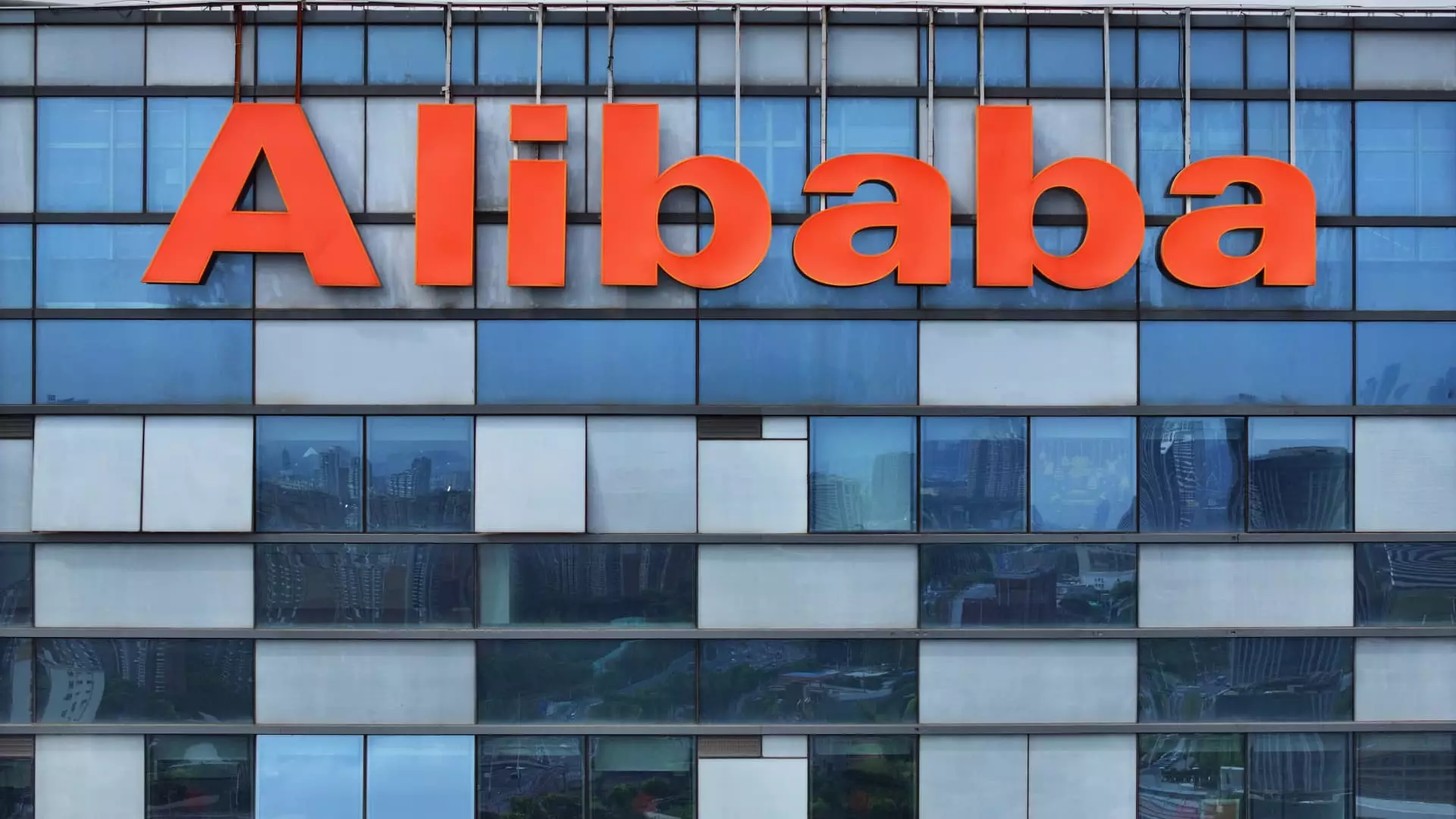Alibaba’s recent quarterly results have sent ripples of optimism through the financial markets, evidenced by a remarkable 11% surge in its share prices on the Hong Kong Stock Exchange. As investors reacted enthusiastically to the reported growth across its cloud intelligence and e-commerce segments, Alibaba’s stock settled 9.18% higher by the close of trading. This upward trajectory is not merely a flash in the pan; analysts are forecasting continued strength in the company’s e-commerce arm for the first half of the calendar year 2025. Nomura, a notable financial services group, attributed this expected growth to ongoing trade-in subsidies instituted by the Chinese government.
In a strategic move to boost consumer spending, these subsidies surfaced last year as part of China’s comprehensive plan to inject 300 billion yuan (approximately $41.5 billion) into the economy through ultra-long government bonds aimed at facilitating trade-ins and equipment upgrades. The implications of this policy resonate particularly within the domestic e-commerce landscape, as revitalized consumer confidence and spending habits appear to be translating into a more sustainable growth trajectory. Vey Sern Ling, a senior equity advisor at UBP, suggests the broader sentiment is not only benefiting Alibaba but the entire tech sector within China, paving the way for increased investment and innovation.
A noteworthy influence on Alibaba’s recent performance is the renewed enthusiasm around artificial intelligence (AI), especially following the emergence of Chinese AI startup DeepSeek. This newer player has undertaken a bold challenge against the established U.S. AI ecosystem with its R1 model, promoting claims of superior functionality at significantly reduced costs. Such developments are symbolizing a crucial shift in speculative capital and competitive focus within China’s tech sector.
According to Barclays, the forthcoming three-year period is poised to be monumental for Alibaba as it embarks on an extensive investment spree in AI and cloud infrastructure. This anticipated commitment may eventually eclipse the total investment the tech giant has made in the past decade, estimated close to 270 billion yuan. Such projections signal an aggressive shift towards establishing Alibaba as a leader in technological advancement and market control, particularly in the burgeoning AI cloud segment, which has already seen an uptick in demand. Importantly, the company’s recently launched Qwen 2.5-Max flagship AI foundation model highlights its efforts to capitalize on the rapidly growing AI inference market.
An unexpected yet pivotal aspect of Alibaba’s recent success is the re-emerging visibility of its founder, Jack Ma. Since 2020, Ma has largely been invisible, especially amidst the regulatory storm that engulfed Alibaba following Ant Group’s canceled IPO. However, a recent rare appearance at a private gathering with Chinese President Xi Jinping indicates a possible shift in government sentiment toward encouraging private enterprises. President Xi’s remarks advocating for private businesses to “display their abilities” and cultivate confidence in this “new era” may indeed signal a thaw in relations between prominent tech firms and the regulatory environment.
This renewed acknowledgment of the value of private enterprise is critical, revealing a potential strategy shift from Beijing. As the government recognizes the significance of tech giants like Alibaba in stimulating economic recovery and innovation, a more collaborative approach could usher in a new era of growth for the company.
Looking Ahead: Alibaba’s Financial Ascent
The financial performance of Alibaba further bolsters the case for optimism. For the quarter ending December 31, the company reported a net income of 48.945 billion yuan ($6.72 billion), significantly surpassing analyst projections of 40.6 billion yuan. This resulted in a staggering threefold increase over the figure reported during the same timeframe last year. Moreover, Alibaba’s revenue of 280.15 billion yuan also topped expectations, affirming the company’s resilient operational capabilities in a constantly evolving marketplace.
As investor confidence grows and market momentum builds, Alibaba appears to be on a course toward sustainable growth amid a recovering economy. Enhanced government support, increased consumer spending, and a strategically driven technology investment plan all set the stage for Alibaba’s potential resurgence as a leading player in the global tech landscape. With continued innovation and adaptability, it seems poised to navigate the challenges ahead successfully.

